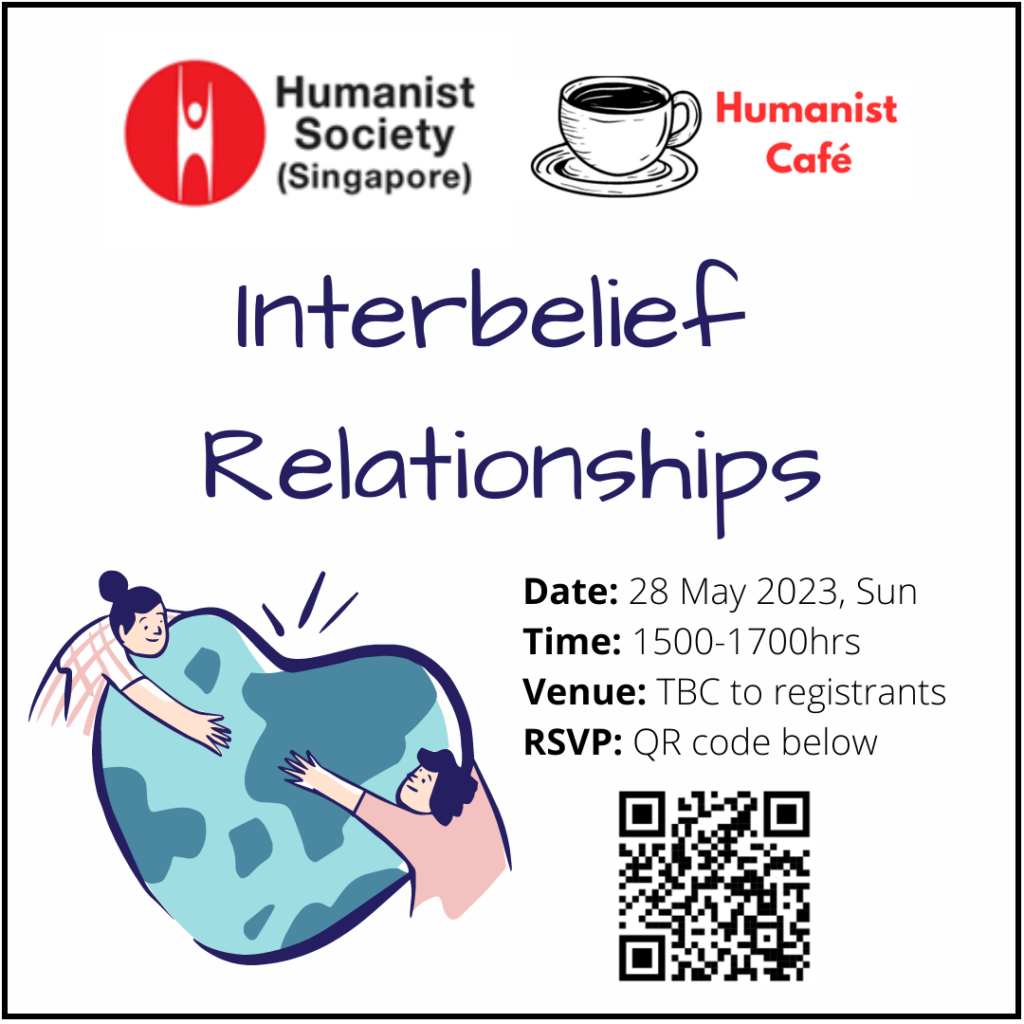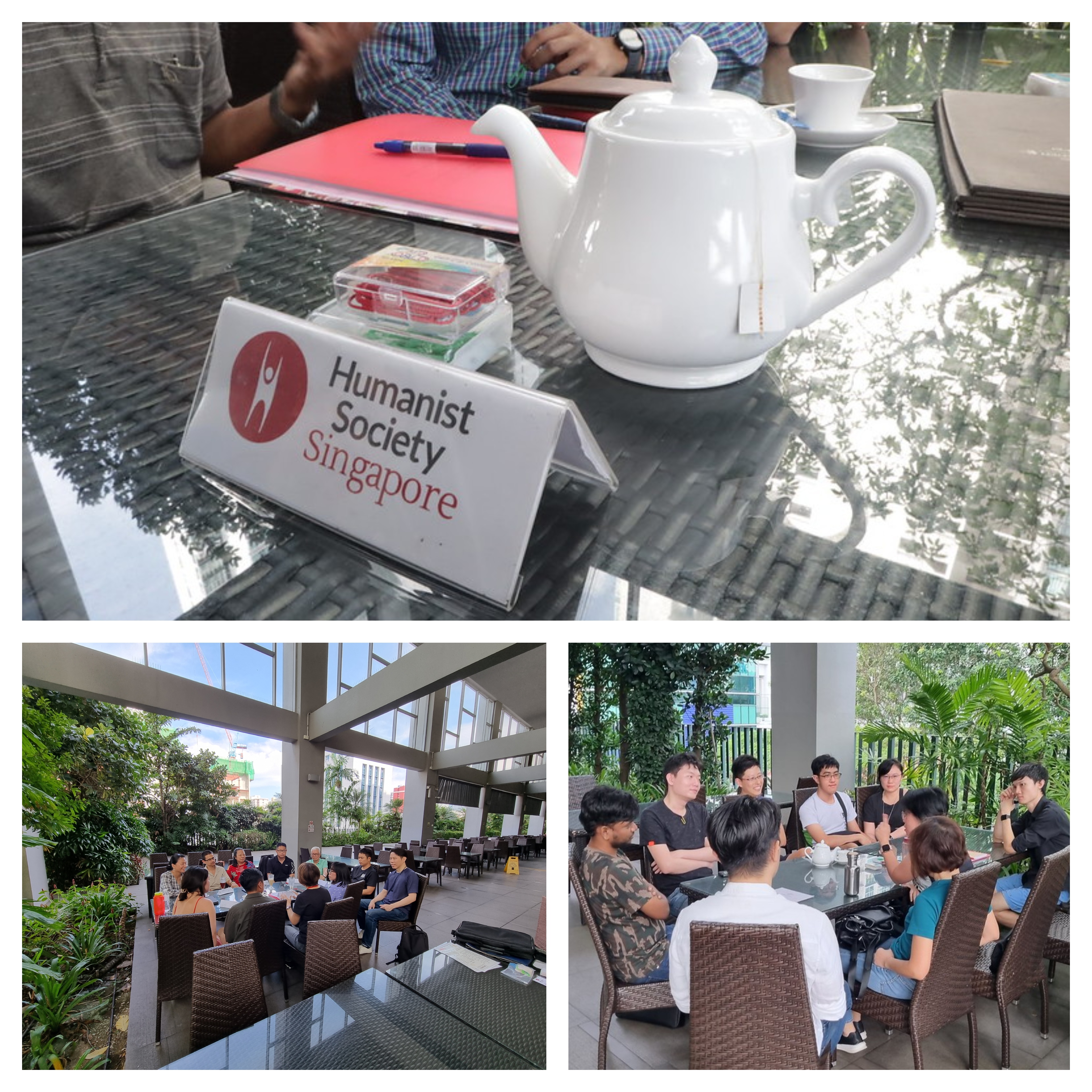
Many non-religious individuals come from families with more than one religion / belief. There are also couples who have different beliefs. At many Humanist events, navigating religious differences with family members and romantic partners is a recurring theme.
With this in mind, on 28 May 2023, the Humanist Society organized a Humanist Cafe discussion with the theme “interbelief and interfaith relationships”. In the two-hour session, we invited 20+ participants to share their personal stories and how they navigate close relationships involving different beliefs.
Most participants come from three groups.
- Those who come from families cannot accept them leaving their religion of birth
- Those who are inter-religious couples (a freethinker and a religious person)
- Those who did not experience issues with interbelief relationships, but remain concerned about religious evangelism and intolerance

The Cafe discussion lasted 2 hours. Major observations:
- Dating someone of different faith can have challenges, but possible — For mixed religious couples (in this case, religious and non-religious), the religious partner is usually quite moderate and open, and already understands when the non-religious partner is already firm on his/her views. In turn, non-religious partners are also willing to make compromises. Eg. attending a religious service once in a while, to show the family that they love their partner.
- Setting boundaries – It is good practice to ask your partner about the red lines — “if this is not okay, let me know” — and in turn, let your partner know your red lines — “If I’m asked to convert, that’s a no go”. Some participants also want this boundary drawn: “You can do what you want, but don’t make me do what you want.” Several participants oppose coercion of partners / family members to join/stick to a particular belief.
- Sometimes offense is inevitable — One non-religious participant shared that even if he tried his best not to offend his religious partner, the partner inevitably got offended when questions about God and meaning of life cropped up. So there’s a need to manage expectations.
- Families’ opposition to mixed faith relationships — It is not enough that two people are accepting of each other. Once the relationship progresses to discussion about marriage, getting family acceptance is the next stage. Unfortunately, it isn’t always so straightforward, and in some cases, persistent family opposition can end a relationship.
- Families’ opposition to apostasy – Participants who grew up in Muslim families but left or in the midst of leaving, find it the hardest to be open about their non-religiosity, especially when their friends and family are still overwhelmingly Muslim. For Christians who left their faith, friendships with their Christian friends were negatively affected as well.
- Adaptations — On the bringing up of children in a mixed-faith family, one participant shared that religious values can still be shared, if not the entire religion. In some cases, when a religion must be studied in order to pass compulsory exams (required in a foreign country), then one must be pragmatic in order to complete formal education.
There were even two participants from Malaysia (Atheist Republic KL) who came down specially to join our session. We are grateful for their support.
The discussion was conducted in a cordial atmosphere. We look forward to the next Cafe session.
| About the Humanist Cafe Humanist Cafe is a monthly gathering aimed at providing peer support for the non-religious at multiple stages of life. Guided by facilitators, participants can share their life experience along one of the six themes marking life’s milestones (as of 2023). At the Cafe, you are able to give and draw support from fellow participants in the process. |




